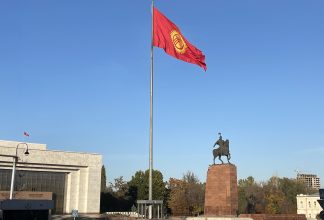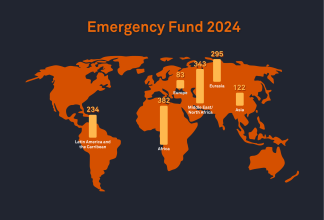Foreign Agents Law in Russia Squeezing Civil Society
On 23 May 2014 the Zamoskvoretskiy District Court rejected an appeal by Memorial Human Rights Center, a leading Russian human rights NGO against the prosecutor’s order requiring it to register as a ”foreign agent”. The judgment is not yet final as Memorial continues to appeal the decision and seek justice.
Civil Rights Defenders are deeply concerned over the court ruling against Memorial and it does not give us much hope for an end to the ongoing crackdown against civil society by the authorities in Russia today.
Under a controversial law adopted in 2012, NGOs that engage in political activities and receive any foreign funding, need to register as ”foreign agents” with the Russian Ministry of Justice. An NGO that fails to register can face heavy fines and/or closure and the chairpeson can ultimately be jailed for up to 2 years.
”It’s high time the Russian authorities stop their smear campaign against human rights defenders and start addressing well-founded concerns regarding the serious human rights violations in the country,” said Roemer Lemaître, Programme Director for Eastern Europe and Central Asia, Civil Rights Defenders.
Memorial is one of the many independent organisations that have been targeted by this new law. Criticism of Russia’s deteriorating human rights record can be classified as a political activity by the authorities thus leading to punitive sanctions. In Russian public opinion a foreign agent is often synonymous with that of a spy or traitor. Russian human rights NGOs have consistently refused to comply with the 2012 law and in some cases have chosen to dissolve rather than register.
”First of all – we are not going to register as a “foreign agent”,second of all – we will continue to work and most importantly of all – with all legal means possible we will defend not only the rights of others, but also our own. We will continue and appeal to higher appelate Courts,” said Alexander Cherkasov, Chairman of Memorial.
During the hearing at the district court in Moscow, the representatives of the prosecutor’s office appeared to be unprepared and inconsistent. Memorial did not deny receiving foreign funding, but insisted that its activities were not ”political.” Lawyers for Memorial were unable to get a clear explanation from the Court on which part of its work consititued “political activities”.
The foreign agents law has drawn sharp criticism from the United Nations, the European Union and the Council of Europé as Memo. Memorial and other Russian NGOs lodged an application to the European Court of Human Rights but the Court has still to examine the case.
Instead of repealing the foreign agents law, the lower house of Parliament, the Duma, recently approved a proposal to widen its scope. If the proposal is adopted by the upper house and signed into law by president Putin, the Ministry of Justice will have the power to register NGOs as foreign agents without the court sanctioning it.


